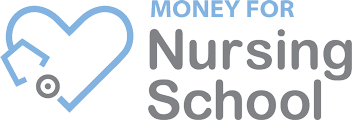 With the need for advanced degrees growing all the time, it’s become more necessary to mitigate the cost of your nursing education. There has been a lot of talk about loan forgiveness. In this blog we’ll give you an overview on how student loan forgiveness can work for you.
With the need for advanced degrees growing all the time, it’s become more necessary to mitigate the cost of your nursing education. There has been a lot of talk about loan forgiveness. In this blog we’ll give you an overview on how student loan forgiveness can work for you.
The federal government has instituted a program for student loan forgiveness that will forgive all or some of your loan. There are a couple components that are considered when seeing if you qualify for forgiveness. First off, your loan has to be in good standing. You can’t be in default, deferment or forbearance.
The type of student loan matters. Private loans cannot be forgiven. If you meet specific criteria the following loans may be forgiven:
- Direct Subsidized Loans
- Direct Unsubsidized Loans
- Direct PLUS Loans
- Direct Consolidation Loans
- Perkins loans
Your job/career field also matter. The following is a list of jobs that qualify for student loan forgiveness:
- Government Workers (Federal, State, Local)
- Emergency management
- Military service
- Public safety or law enforcement services
- Public health services
- Teachers
- Medical Professionals (Doctors, Nurses, Dentists)
- Lawyers
- Veterinarian
- Pharmacist
- Public education or public library services
- School library and other school-based services
- Public interest law services
- Early childhood education
- Public service for individuals with disabilities and the elderly
- Volunteer with AmeriCorps, Peace Corps and other qualifying volunteer organizations
The type of repayment plan you currently have also matters. The following plans qualify for forgiveness:
- Revised Pay as You Earn Repayment Plan (REPAYE Plan)
- Pay As You Earn Repayment Plan (PAYE Plan)
- Income-Based Repayment Plan (IBR Plan)
- Income-Contingent Repayment Plan (ICR Plan)
You can start your forgiveness application here.
